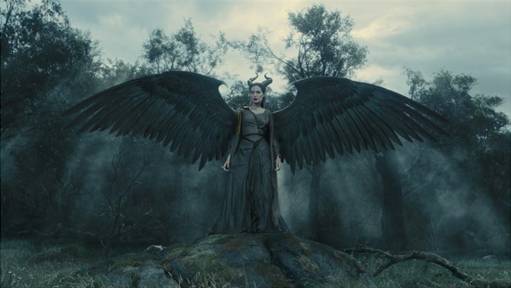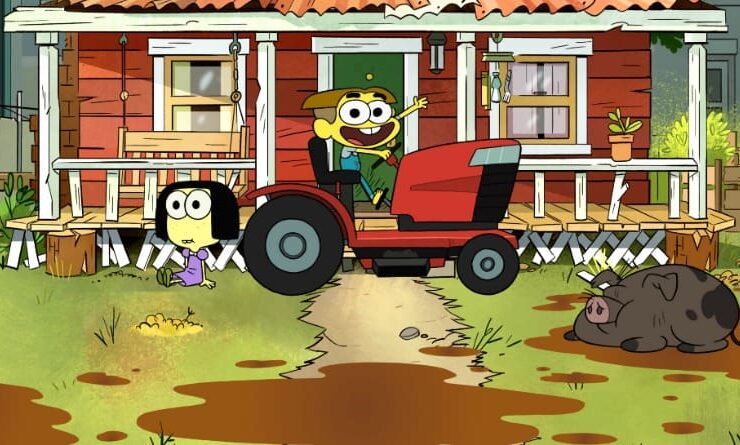Disney Nature’s CHIMPANZEE~More Fun Information

I have been enjoying ALL of this information from Disneynature regarding the movie CHIMPANZEE coming to theaters April 20th, and I wanted to pass this fun information onto my readers. Hence the reason for all of the postings:
Enjoy!
~in theaters nationwide April 20, 2012
ADVANCE
Disneynature takes moviegoers deep into the forests of Africa with “Chimpanzee,” a new True Life Adventure introducing an adorable young chimpanzee named Oscar and his entertaining approach to life in a remarkable story of family bonds and individual triumph. Directed by Alastair Fothergill (“African Cats” and “Earth”) and Mark Linfield (“Earth”), and narrated by Tim Allen (“Toy Story 3,” ABC’s “Last Man Standing”), “Chimpanzee” is the fourth release for Disneynature—the first three releases under the label (“Earth,” “Oceans” and “African Cats”) are among the top four highest grossing feature-length nature films of all time.
“Chimpanzee” showcases Oscar’s playful curiosity, his zest for discovery and the intelligence and ingenuity of some of the most extraordinary personalities in the animal kingdom. Working together, Oscar’s chimpanzee family—including his mom, Isha, and the group’s savvy leader, Freddy—navigates the complex territory of the forest.
The world is a playground for little Oscar and his fellow young chimpanzees, who’d rather make mayhem than join their parents for an afternoon nap. But when Oscar’s family is confronted by a rival band of chimpanzees, he is left to fend for himself until a surprising ally steps in and changes his life forever.
Rated G by the MPAA, “Chimpanzee” swings into theaters on April 20, 2012, just in time for Earth Day.
TINY TREASURE
Weighing just a few pounds at birth, little Oscar had no idea how big an impact he’d make so early in life.
But the “Chimpanzee” filmmakers did. “Everyone loved Oscar from the moment they saw him,” says director Alastair Fothergill. “There’s something playful and a bit naughty about him and he’s clearly quite determined.”
Director Mark Linfield credits Oscar with helping him realize a lifelong dream. “I have always wanted to make a film about chimpanzees and I don’t think there could be a more fascinating wildlife subject,” he says. “They can be playful and tender, cunning, loving, competitive, curious and simply full of fun. They’re just like us, or we’re just like them, however you want to think of it, and when they look out at us from the big screen, it’s impossible not to feel an extraordinary connection and be completely engaged.”
But discovering Oscar wasn’t easy. According to Fothergill and Linfield, chimpanzees are challenging subjects—they’re wary of humans and notoriously tough to observe in the wild. Add to that, the filmmakers’ desire to shoot the film in the depths of the rainforests of Africa. While more difficult, the setting—stunning and complex—is fresh and unique to moviegoers.
The Taï Forest trek
The République de Côte-d’Ivoire, as it is officially known, is a country roughly half the size of Texas with a population of 21 million and a southern border along the Gulf of Guinea. The Taï Forest, situated 60 miles inland, was designated a UNESCO World Heritage Site in 1982. It is an area of astonishing biodiversity—hundreds of species of plants and birds live within its borders. And it’s home to a thriving population of chimpanzees.
Fothergill and Linfield, who’ve shot wildlife films on every continent and in some of the world’s most hostile environments, long ago accepted the discomforts and logistical challenges that are part of every nature filmmaker’s job description. But both considered the Taï Forest to be especially grueling. “One of the big things is the sheer inaccessibility of the Taï Forest,” says Fothergill. “To get there you begin by driving 10 hours from the nearest city on what’s still a tarmac road. Then you do another four hours on a dirt road that is sometimes impassable. And, if you make it that far, there’s an hour or more of walking along a very narrow path into the forest.”
In March of 2008, despite their reservations, the two directors decided to do a “recce” (reconnaissance, pronounced rek-ee), to the Ivory Coast to help them determine where they would shoot. A three-mile trek into the jungle in search of the chimpanzees was, says Fothergill, “like jogging in a sauna.” Once they got into the forest Linfield took out his light meter and couldn’t get a reading: the dense canopy blocked the sun. The filmmakers struggled to keep up with the chimpanzees, who were naturally agile despite the tangled jungle vegetation. “A lot of the time you are on your hands and knees and ducking vines,” says Linfield, who feared the dark and fleeting shapes of the chimpanzees would end up on film as mere “shadows within the shadows.”
Yet on their third and last day of the recce, just when the two directors were about to admit defeat, they had a miraculous change of fortune. “We suddenly came to this sunlit clearing in the forest,” says Fothergill, “and sitting on and around the trunk of a rotten tree were over 30 chimpanzees.” Some of the older chimpanzees were in small groups grooming each other, adolescent males were showing off in front of the females, and several youngsters were running up and down a termite mound playing a game of king of the castle, shrieking with delight as they reached the top of the mound.
These were the chimpanzees that the filmmakers would soon know by name and who would become the focus of their film: Freddy, the powerful and highly respected leader of the group; Oscar, the feisty, funny and adorable young chimpanzee whose fate would be at the heart of their story; and Isha, Oscar’s loving mother and caretaker.
TURN OF EVENTS
Nature has a way of introducing conflict into the most beautiful settings, and it didn’t take long once filming commenced to discover who would be spearheading the conflict in “Chimpanzee.” A rival group of chimpanzees lingered on the edge of Freddy’s turf, eager for a taste of the nuts that grew in a local grove. The tension ultimately took a tragic turn, separating Oscar from mom Isha and changing his life forever.
Experts estimate that half of all newborn chimpanzees die within the first five years of life. Oscar still relied on his mother for both protection and breast milk. Without her, his chances of surviving seemed slim. “We had all fallen in love with little Oscar,” says Fothergill, “so it was incredibly painful to see him so alone and helpless. In the back of our minds, we were also thinking we might have to call Disney and say, ‘Thanks guys, we haven’t got a movie.’”
The crew anxiously watched Oscar forlornly trailing behind the other chimpanzees, clearly traumatized by his loss and looking weaker by the day. But just when things seemed hopeless, a small miracle took place, says Fothergill. “Oscar approached Freddy with this sort of sad attitude of, ‘Nobody else is going to look after me, how about you?’ And Freddy’s response was just the most incredible, amazing and unpredictable thing I have ever seen.”
Freddy let Oscar climb aboard his back and the patriarch carried the young chimpanzee through the rainforest just as Isha had once done. It was extraordinary. Alpha males like Freddy rarely care for young chimpanzees—and it had never been caught on film.
Over the next few days, Oscar stayed as close as he could to his new protector. Before long, Freddy was cracking nuts for him, sharing his nest with him at night and delicately grooming the baby chimpanzee. “It was just amazing and very touching to see this big, normally gruff male pour his love and devotion into caring for Oscar,” says Linfield.
Experts agree. Christophe Boesch, one of the world’s most renowned chimpanzee experts and a director at the Max Planck Institute in Leipzig, Germany, has been studying chimpanzees in the Taï Forest National Park for more than 30 years. “I have never seen a male like Freddy take up the role of a mother like that,” says Boesch. “It was very moving for me to see Oscar’s longing for some sort of protection and closeness and the tenderness that Freddy showed him. It is very unusual.”
Adds Dr. Jane Goodall, one of the world’s foremost conservationists and an authority on chimpanzee behavior, “The adoption of an infant by an adult alpha male has never been filmed like this. We had one adopted by a 12-year-old [at the Gombe Stream Research Center in Tanzania], but that’s nothing like a top ranking male, so the fact that it happened just when the film was being made [is] amazing.
“It’s incredible because when you’re an alpha male or number one male, you have a certain role to play,” continues Dr. Goodall. “You have to make sure that you keep the cohesion of the other males in your group, which is very important because of territorial aggression. Looking after an infant, carrying an infant on your back, spending time grooming an infant, is going to detract you from the normal role of the alpha male, so it’s an altruistic behavior but an interesting one, because that very altruism could have led to the demise of the whole group, or at least to them losing their territory.”
Dr. Goodall is also impressed with the footage that Fothergill, Linfield and their crew captured in the Taï Forest. “I thought the film was wonderful, especially knowing something about the conditions under which it was made. I’m filled with admiration for the people who made it. It’s got drama, it’s got a story, it’s got sadness and it’s got a lot of humor.”
For Fothergill, “Chimpanzee” also has a special place in his heart. “People often ask you as a wildlife filmmaker what your favorite animal is on the planet,” he says. “I always say chimpanzees. I’ve said that for 25 years. This film has just confirmed my complete passion for these animals and if we can communicate that passion to audiences then I will be enormously happy.”
SEE “CHIMPANZEE,” SAVE CHIMPANZEES
For every moviegoer who sees “Chimpanzee” during the film’s opening week (April 20-26, 2012), Disneynature will make a donation to the Jane Goodall Institute (JGI) through the Disney Worldwide Conservation Fund to protect chimpanzees today and tomorrow. Founded in 1977, the Jane Goodall Institute continues Dr. Goodall’s pioneering research on chimpanzee behavior started more than 50 years ago—research that transformed scientific perceptions of the relationship between humans and animals. Today, the Institute is a global leader in the effort to protect chimpanzees and their habitats. It also is widely recognized for establishing innovative community-centered conservation and development programs in Africa, and Jane Goodall’s Roots & Shoots, the global environmental and humanitarian program for youth of all ages, which has groups in more than 120 countries. To learn more about JGI, please visit www.janegoodall.org.
What's Your Reaction?
Newly middle-aged wife of 1, Mom of 3, Grandma of 2. A professional blogger who has lived in 3 places since losing her home to a house fire in October 2018 with her husband. Becky appreciates being self-employed which has allowed her to work from 'anywhere'. Life is better when you can laugh. As you can tell by her Facebook page where she keeps the humor memes going daily. Becky looks forward to the upcoming new year. It will be fun to see what 2020 holds.







